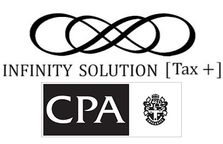
Chartered Accountants vs. CPAs: What's the Difference?
Introduction
In the world of finance and accounting, clearness is key. Lots of services and people find themselves in a situation when it comes to choosing between a Chartered Accountant and a Certified Public Accountant (CPA). While both experts supply important services related to finance, tax, and compliance, they run under different regulative frameworks and have distinct credentials. This article dives deep into understanding the subtleties between Chartered Accountants and CPAs, their roles, credentials, benefits, and what sets them apart in the realm of accounting.
Chartered Accountants vs. CPAs: What's the Difference? is not simply a scholastic question; Accountant it's one that affects monetary decisions for companies and individuals alike.
Understanding Accounting Professions
What is a Chartered Accountant?
A Chartered Accountant (CA) is an expert who has finished specific educational requirements and has gone through extensive training in accounting concepts. In Australia, Chartered Accountants are acknowledged by the Chartered Accountants Australia and New Zealand (CA ANZ) The designation is considered prominent due to its rigorous examination process.
Qualifications Needed for CAs
To end up being a Chartered Accountant in Australia:
What is a CPA?
A Certified Public Accountant (CPA) is another esteemed designation within the accounting occupation but follows different standards compared to CAs. In Australia, Certified public accountants are acknowledged through the CPA Australia, which governs their requirements and practices.
Qualifications Needed for CPAs
To get CPA status in Australia:
Key Differences between Chartered Accountants and CPAs
Regulatory Bodies
- Chartered Accountants: Governed by CA ANZ.
- CPAs: Controlled by CPA Australia.
Examination Process
While both need assessments, the subjects covered might vary a little:
- CAs concentrate on sophisticated auditing, taxation law, financial reporting standards, etc.
- CPAs also cover similar locations however might stress management accounting more heavily.
Scope of Providers Offered
Both experts provide similar services but might differ in certain areas:
- Chartered Accountants: Typically associated with auditing monetary declarations, providing consulting services for organization strategies.
- CPAs: Typically engaged more with tax preparation services or providing financial recommendations for individuals.
Career Opportunities for Chartered Accountants vs. CPAs
Job Market Trends for CAs
The need for Australian Chartered Accountants has actually stayed robust due to their specialized skills in auditing and business finance:
Job Market Patterns for CPAs
Certified Public Accountants hold significant opportunities too:
Benefits of Working with a Chartered Accountant vs. CPA
Why Select a Chartered Accountant?
Why Pick a CPA?
Geographical Considerations: CAs & CPAs Globally
International Acknowledgment of Chartered Accountants
Chartered Accountants are recognized globally due to their strenuous training:
- In many nations like Canada and India, CAs have comparable standing as they perform in Australia.
- This worldwide acknowledgment opens doors across borders for career opportunities.
Global Standing of Certified Public Accountants
Similarly, CPAs likewise enjoy acknowledgment around the globe:

- Particularly valued in the USA where they are viewed as highly qualified specialists capable of using detailed audit services.
Choosing Between CAs & CPAs: Factors to Consider
When deciding whether to employ a Chartered Accountant or a CPA accountant, consider aspects such as:
Understanding these aspects will aid you in making a notified decision customized to your unique situation.
Common Misunderstandings about CAs & CPAs
1) Are all accountants either CA or CPA?
No! There are various kinds of accountants with various expertises-- numerous accountants work without these classifications but still offer valuable services.
2) Is one classification superior?
Neither designation transcends; they cater to various sectors based on specific requirements-- what matters most is finding somebody whose skill set aligns with your requirements!

FAQs
1) What does it take to end up being a CA?
Becoming a CA needs finishing a recognized degree followed by practical training under guidance together with passing comprehensive examinations set by CA ANZ.
2) The length of time does it require to become a CPA?
Typically takes around 5 years including education requirements plus working experience before sitting examinations set by CPA Australia.
3) Can I shift from being an accountant to becoming either CA or CPA?
Yes! If you currently have relevant qualifications/experience you might pursue additional coursework/training necessary for either designation!
4) Do I need both qualifications?
Not always! Depending on your profession objectives you might select one over the other or even think about additional certifications later on on!

5) What role do tax agents play compared to CAs/CPAs?
Tax representatives mainly focus entirely on preparing taxes whereas CAs/CPAS manage more comprehensive financial tasks including auditing/consulting etc., providing detailed recommendations beyond simply taxes!
6) Are there charges associated with keeping these designations?
Yes! Both require payment of annual membership charges in addition to costs sustained during continuing education/training programs required for expert development!
Conclusion
In summary, distinguishing between Chartered Accountants and Certified Public Accountants requires an understanding of their particular certifications, regulatory environments, profession paths readily available post-certification, and specific customer needs they satisfy within the bigger scope of accounting practice today!
Whether you focus on competence in corporate finance through employing an Australian Chartered Accountant or choose towards getting insight into individual finances by means of Qualified Public Accounting firms-- understanding what each professional comes up with ensures noise choices benefiting both individuals/businesses alike while navigating through intricacies intrinsic within modern financial landscapes effectively!
So next time you're confronted with choices related to finances remember this guide attending to "Chartered Accountants vs.CP As: What's The Distinction?" will assist guide towards achieving clearness in the middle of confusion common surrounding these esteemed professions today!